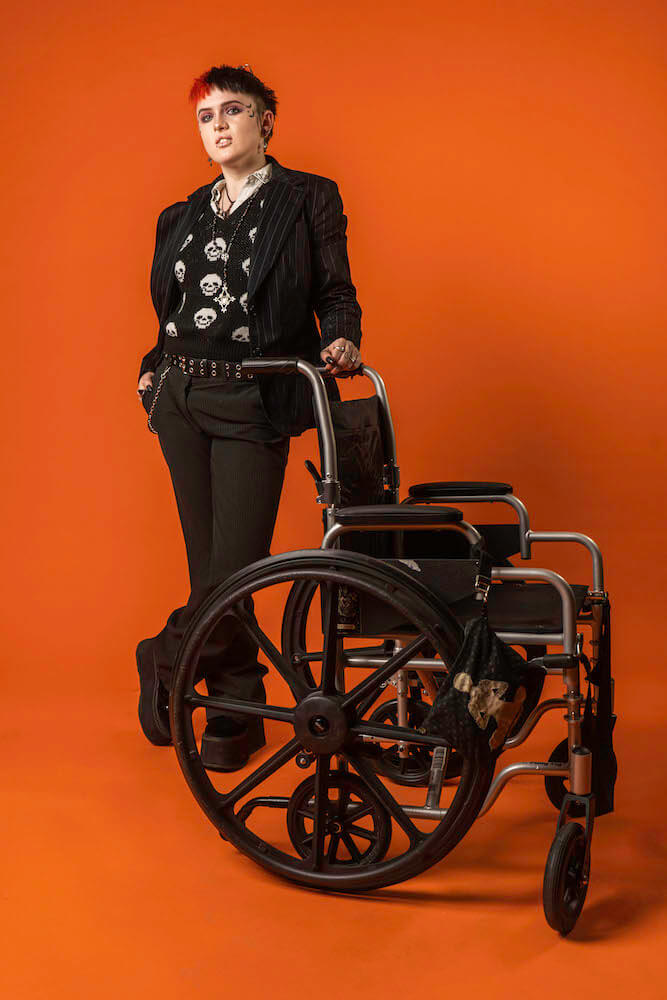About Dannie
Dannie Llyr (they/them) doesn’t let chronic pain from autism, postural orthostatic tachycardia syndrome (POTS), dysautonomia or arthritis stop them from doing the things they love, like dancing and hiking.
Dannie has learned to adapt these activities by dancing in their wheelchair when their legs get tired and choosing less strenuous trails to hike with friends.
Dannie’s wish is for people with chronic illnesses to have a seat at the table when talking about disability and inclusion.
Dannie Llyr on Ableism
[00:00] My name is Dannie Llyr. I use the/them pronouns. I have a few chronic illnesses and disabilities. So even though I have multiple chronic illnesses and disabilities, like I've found ways to still live a full life, even though I've had to give up certain things, I found ways to replace it. Like I love to go out and dance, but sometimes I can't stand so I'll just sit in my chair and move. My partner, Adrian, goes with me. We have a great time, and if either one of us gets to a point where it's like, "Hey, I'm hurting, can we go home?," like we don't make each other feel guilty. We just we pack up and we go, and you just have to find the right people and then make the right adjustments to your life.
[00:27] (Offscreen, Harper Nichols) If you were able to wake up tomorrow, and not have any of your chronic illness or any of your disabilities would you do it?
[00:37] (Dannie) Some of them? Yes. Um, the pain, please. Like all the arthritis and things like that, like, yeah, I would totally take that back because it can really affect like how I'm able to do things. My autism, probably not. I do wish I could have had like more assistance growing up, but I like who I am, and a lot of who I am is because of my autism, and with my ADHD like, I wish I could change aspects of it. But I don't want to take it away.
[01:08] Growing up, a lot of people didn't listen to me. I was told I was just doing it for attention, including family. I didn't get most of my diagnoses until I was well into adulthood.
[01:17] With external ableism a lot of people saying like "you're not disabled enough." I had someone on Tik Tok where I was talking about, like, hey, this thing isn't accessible to everybody because of like disabilities, and they're like, "Well you're standing in your Tik Tok and dancing, you're not disabled," completely ignoring the fact that a Tik Tok takes 30 seconds to make, and I can stand for 30 seconds. Internalized ableism: there's a lot of that. There's a lot of you're doing this for attention even though I know I'm not.
[01:43] Not all disabilities are visible. Not everybody who uses a chair is going to be in that chair 24/7, and it's not anyone's place to judge if someone really is disabled or not. And more accommodations need to be made for invisible disabilities or less visible disabilities, and we deserve a seat at the Disability Table. End of discussion.

